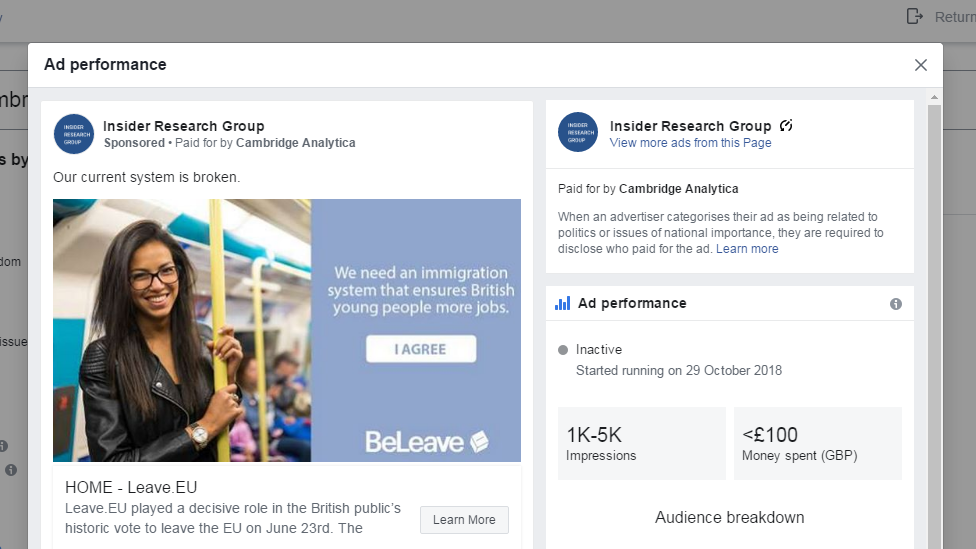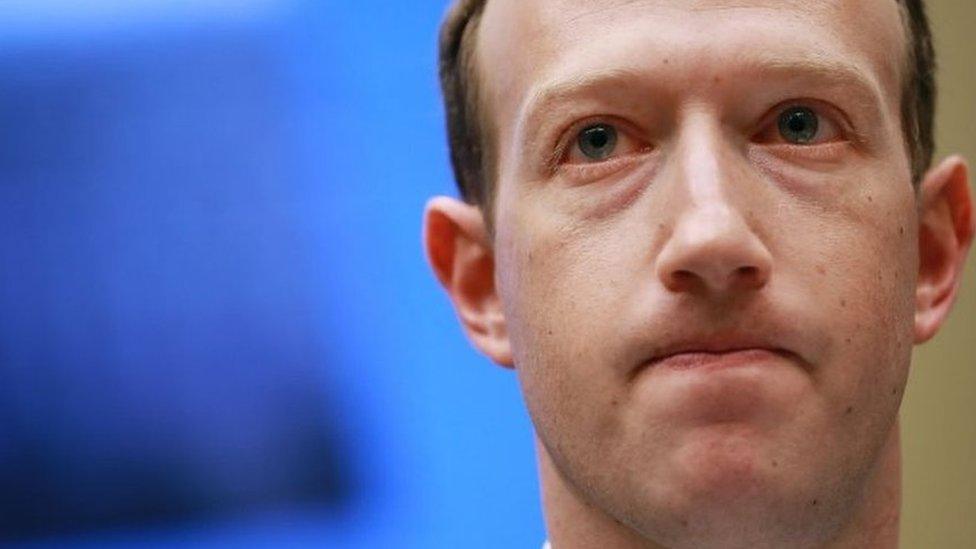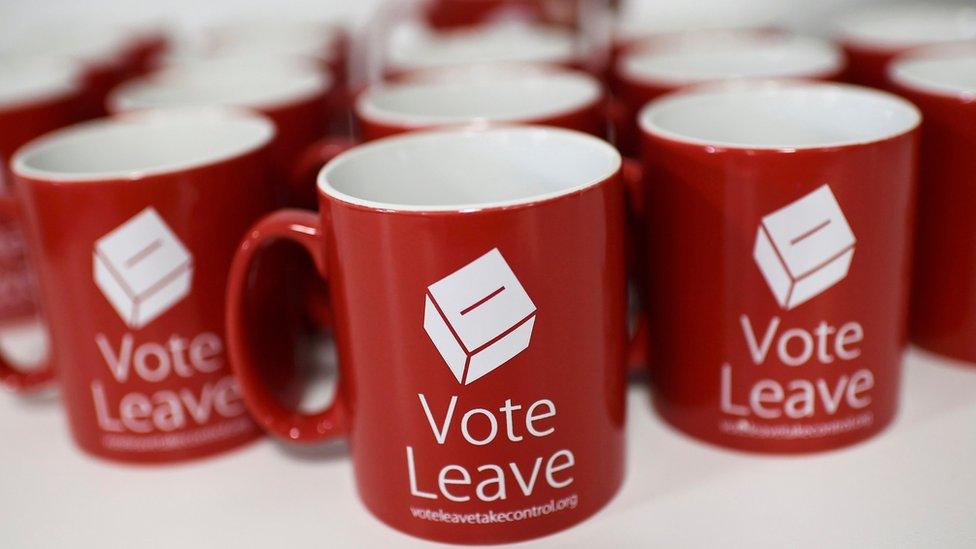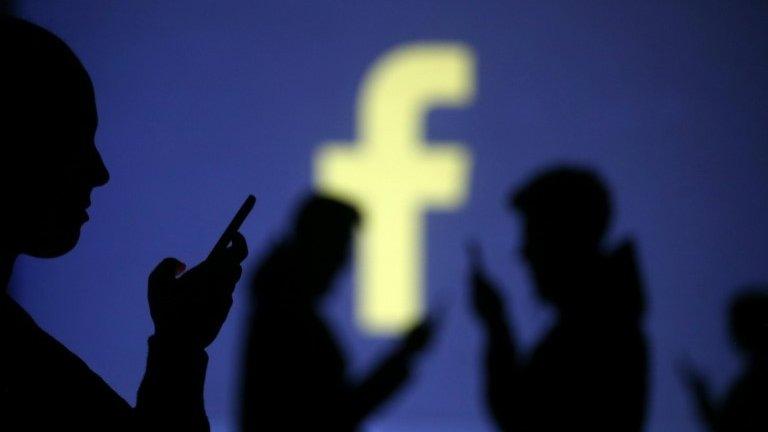Fake Cambridge Analytica ad hits Facebook
- Published

The ad cost less than £100 to promote on Facebook and has been viewed by more than 1,000 people
A fake advert purporting to have been paid for by scandal-hit Cambridge Analytica has been posted to Facebook.
The ad, now removed but still visible in Facebook's new ad transparency portal, external, uses the logo of EU referendum campaign group BeLeave, which, in July, was found to have broken electoral law.
It calls for a new immigration policy, saying: "Our current system is broken."
News site Business Insider confirmed to the BBC that it made the ad for a story on Facebook's advertising tools.
Cambridge Analytica closed down operations in May.
"This ad was not created by Cambridge Analytica," a Facebook spokesman said.
"It is fake, violates our policies and has been taken down.
"We believe people on Facebook should know who is behind the political ads they're seeing, which is why we are creating the Ads Library so that you can see who is accountable for any political ad.
"We have tools for anyone to report suspicious activity such as this."
Jim Edwards, editor-in-chief of Business Insider UK said, "We hope our story will push Facebook into making its advertising system more secure and less open to abuse."
The ad was spotted, external by Guardian and Observer journalist Carole Cadwalladr.
"It just highlights how completely useless Facebook's new transparency rules are," she told the BBC.
"I can't think how they ever thought they were going to work - anybody can write anything in that box."
Tougher rules?
From 16 October, Facebook's new rules for political ads in the UK came into effect.
The social network had claimed that creators of such ads would have to prove their identity and location.
However, the resilience of Facebook's system has been called into question.
News site Vice was able to post ads, external purporting to be paid for by every sitting US senator, a total of 100 individuals.
"Receiving approval to run an ad 'paid for' by a senator typically just took a few minutes," said Vice journalist William Turton.
The fake ad comes as the UK and Canadian parliaments join forces to demand that Facebook chief executive Mark Zuckerberg respond to MP's questions over the Cambridge Analytica scandal.
A hearing will be held by the UK House of Commons digital, culture, media and sport committee on 27 November.
In a joint letter, the organisers appealed to Mr Zuckerberg to make an appearance.
"We would have thought that this responsibility is something that you would want to take up," wrote chair of the House of Commons committee Damian Collins and Bob Zimmer, chair of the Canadian standing committee on access to information, privacy and ethics.
- Published25 October 2018

- Published17 July 2018

- Published2 May 2018
